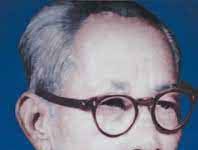King Fahd bin Abdulaziz | Brief Biography
King Fahd bin Abdulaziz
King Fahd bin Abdulaziz
King Fahd bin Abdulaziz Al Saud was the King of Saudi Arabia from 1982 until his death in 2005. He was born in Riyadh, Saudi Arabia on March 1, 1921, and was the eighth son of King Abdulaziz, the founder of the modern Kingdom of Saudi Arabia.
King Fahd was educated in the Kingdom and received a traditional Islamic education. He held several important positions within the government prior to becoming King, including serving as the Minister of Education, Minister of Interior, and Crown Prince.
In 1982, King Fahd became the King of Saudi Arabia after the death of King Khalid. He inherited a country that was already one of the wealthiest and most influential in the world due to its vast oil reserves. Under King Fahd’s leadership, Saudi Arabia continued to grow and modernize, making significant investments in infrastructure, education, and technology.
One of King Fahd’s major initiatives was the establishment of the King Abdulaziz City for Science and Technology (KACST), which was established in 1977. The organization was dedicated to promoting scientific research and development in the Kingdom. King Fahd also launched several other programs to promote economic development, such as the creation of the General Investment Authority and the modernization of the legal and regulatory framework to encourage foreign investment.
King Fahd bin Abdul Aziz was known for his strong commitment to Islam and the Muslim world. He was a patron of the Islamic Summit Conferences, which aimed to promote unity and cooperation among Muslim countries. He was also instrumental in establishing the Organization of the Islamic Conference (OIC), which remains the largest organization of Muslim countries in the world.
King Fahd also played a critical role in international affairs. He was a key ally of the United States and worked to promote stability and peace in the Middle East. He was instrumental in the establishment of the Gulf Cooperation Council (GCC), which aimed to promote cooperation and unity among the Arab states of the Persian Gulf.
King Fahd suffered a stroke in 1995, which left him incapacitated for the remainder of his life. Despite this, he continued to serve as King until his death on August 1, 2005. 0 0 0.
Sources:
“King Fahd bin Abdulaziz of Saudi Arabia.” Encyclopædia Britannica, Encyclopædia Britannica.
“King Fahd bin Abdulaziz” Wikipedia, Wikimedia Foundation, 17 Jan. 2021.
“King Fahd of Saudi Arabia.” BBC News, BBC, 3 Aug. 2005. ***
N.B. The article ‘King Fahd bin Abdulaziz’ originally belongs to the book ‘Brief Biographies of Eminent Monarchs‘ by Menonim Menonimus.
Books of Biography by M. Menonimus:
- The World Writers-Brief Biographies
- Introduction to World Writers
- Introduction to World Personalities
- Love of Reputed Persons
- Brief Biographies of Ancient Thinkers and Writers..
Additional Searches:











